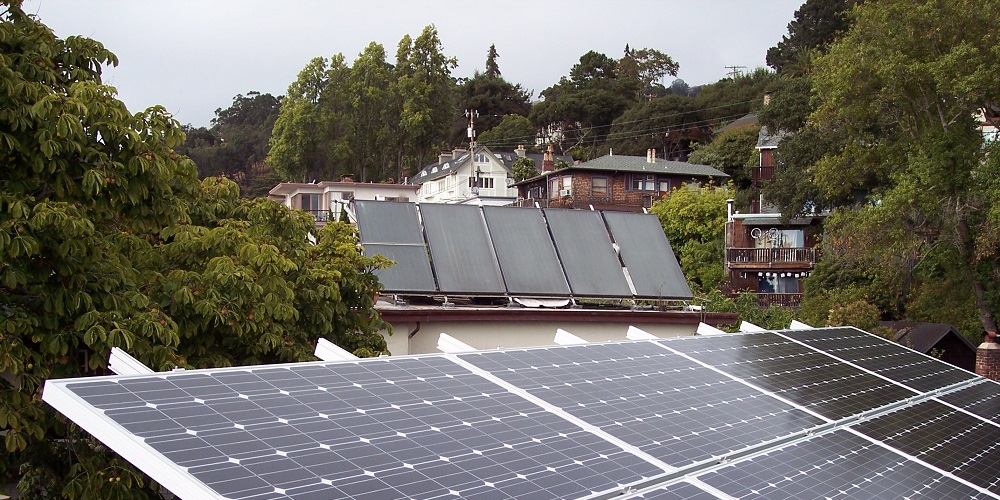EkoSvest calls on Macedonian government to move to more rational renewable energy support system
Environmental NGO Eko-svest has this week called on the Macedonian government not to continue subsidising new renewable energy plants through the guaranteed buy-off of electricity at a guaranteed price and to instead move to a more competitive system with lower costs for end consumers.
10 December 2018

The call comes as the Government plans a new Decree on Support Measures for Electricity Production from Renewable Energy Sources [1] that extends the system of feed-in tariffs, without even a competitive tender.
The intent to continue paying guaranteed prices to new plants on a first-come, first-served basis is in conflict with EU rules that stipulate moving towards more competitive and market-based support schemes using auctions for all but the smallest plants in order to reduce costs.[2]
Macedonia is obliged to comply with EU legislation on competition under the Energy Community Treaty and its Stabilisation and Association Agreement with the EU and has been receiving assistance from the EBRD and USAID to move towards a new incentives system.[3]
The new draft Decree includes auctions for larger wind and solar plants, but leaves the feed-in tariff system in place hydropower plants of up to 10 MW, wind farms of up to 50 MW, and biomass and biogas-fired facilities of up to 1 MW.
“Well-targeted feed-in tariffs can be appropriate for the first few years of renewable energy development but in Macedonia they have served to drive a boom of damaging small hydropower plants which have seriously damaged rivers like Tresonecka in the National Park Mavrovo and Brajcinska in the National Park Pelister. This is especially unacceptable considering the small hydropower plants’ marginal contribution to electricity generation, and subsidies for hydropower must be stopped,” said Davor Pehchevski of Eko-svest.
“In addition, the use of feed-in tariffs can cause excessive costs for Macedonian consumers and ultimately cause a backlash against renewable energy. An energy-efficient, renewable-energy-based economy is an imperative in order to limit climate change and prevent the health and environmental impacts of traditional sources of energy. We therefore cannot afford to turn public opinion against its development”, added Nevena Smilevska of Eko-svest.
“Technologies that are not new should not be financially supported. Solar and wind, which are still being refined, and whose price is still dropping, are the only generation technologies that should still be considered for financial incentives. Support for demand-side energy savings is also crucial in order to cut costs for households and reduce the environmental impact of energy production,” she added.
Eko-svest is also calling for a public consultation on the new legislation, considering its potential importance for the environment and household costs.
Contacts
Davor Pehchevski
Center for environmental research and information “Eko-svest” – Skopje, Macedonia
Mobile: +389 71 264 087
E-mail: davor@ekosvest.com.mk
Notes for editors
[1] Decree on Support Measures for Electricity Production from Renewable Energy Sources Draft available here.
[2] The EU’s Energy and Environment Aid Guidelines (EEAG) 2014-2020 clearly state that:
- Projects to be supported financially must be selected through a competitive procedure except for those smaller than 1 MW or, in the case of wind, 6 MW or six production units.
- Feed-in tariffs are no longer allowed for plants of more than 500 kW except for wind plants where it may be allowed for up to 3 MW or three production units. Only premiums to make up the difference between the market price and the pledged generation price are allowed.The Energy Community Secretariat, EBRD and IRENA have produced Guidelines on this issue which suggest that in the Energy Community countries, in some cases it may be necessary to retain feed-in tariffs until a liquid day-ahead electricity market exists, on the condition that they are awarded via a competitive tender, and not on a first-come, first-served basis.
[3] More information about the EBRD Solar photovoltaic and wind power plant support programme is available here.
More information about USAID’s work on energy in Macedonia is here.
Never miss an update
We expose the risks of international public finance and bring critical updates from the ground – straight to your inbox.
Location: Macedonia
Tags: Energy Community | hydropower | renewables
